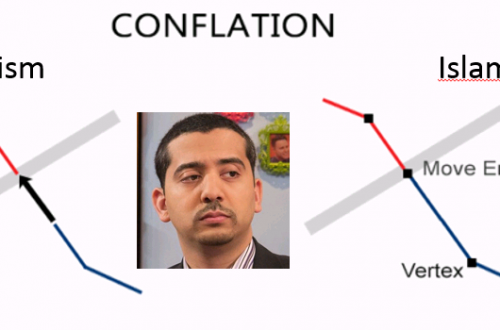I don’t presume to know what happened between Officer Darren Wilson and Michael Brown, an 18-year-old black teenager, on August 9, 2014, in Ferguson, Missouri, that led to Wilson’s fatal shooting of Brown.
Although a number of people who claimed to have witnessed the shooting offered varying accounts to the grand jury which chose not to indict the officer, the only one who knows for sure what happened is Wilson. And, as Judd Legum observed at Think Progress, his account of the events leading up to the Brown’s death has a ring of science fiction about it. He testified that Brown’s face “looked like a demon” and that as he fired at Brown, the teenager appeared to be “bulking up” to “run through the shots.” Some witnesses, however, said Brown appeared to be staggering forward as if he had been severely wounded.
Of course it’s possible that Wilson was telling the truth as he saw it. And if the case had gone to trial, it’s very likely that Wilson would have been acquitted of homicide for lack of clear and compelling evidence against him.
But I can understand why this case resonated with so many African-Americans. Gary Fields, a black reporter for The Wall Street Journal, wrote that the Michael Brown case reminded him of an incident from his teenage years.
My first thought was: What’s the difference between a 6-foot-3-inch, 230-pound, black 17-year-old and a 40ish, 5-foot-6-inch black man? Depending on the circumstances, I knew, not much.
It was the late 1970s, and I was that large, 17-year-old, high-school kid—getting good grades and college-bound. I was walking home from Bowlero, a bowling alley in Alexandria, La., on a beautiful Saturday afternoon. I was carrying my bowling bag, complete with a 16-pound ball, shoes and a towel.
I noticed police cars speeding around. Several passed before a Louisiana state trooper stopped. He told me to be careful: There had been a fatal shooting in my neighborhood, and the suspect—a 5-foot-6-inch black man—had escaped on a bicycle.
I walked on until I heard a screech of brakes and looked back. A Rapides Parish sheriff’s deputy—Louisiana has parishes, not counties—got out, crouched behind his car door and pointed his .357-Magnum at me over the top of the door. When you’re on the wrong end of it, the barrel of a .357 looks exactly like a tunnel to eternity.
I knew a few things instinctively: Don’t run, don’t move, don’t argue, and above all, don’t ask why I’d been stopped. Stay calm to live, I thought. The cop had the gun, but it was my responsibility not to do anything to push him to use lethal force against me.
“Turn around real slow,” he said. That’s just what I did. I asked if it was OK to put down the bowling bag, slowly. I knew I had to do everything I could not to create any fear in the officer. Dead but innocent is still dead.
I said little, even as the deputy pushed me down on the hood of his car and handcuffed me.
I was saved when the state trooper who had first stopped me drove back by. He ripped into the deputy, asking him questions, and I answered—which, in another situation, could have been a comedy routine. Does this kid look 5-6? I answered, I’m 6-3. Does this kid look 40? I’m 17. Does this kid look 150 pounds? I’m 230.
The trooper ran through several descriptors for the suspect. I matched just one of them. I asked, “Outside of the basic black, is there any part of the description I fit?”
“Don’t get smart, boy,” the deputy hollered. But the trooper, who also was white, ended the discussion. He was livid. I thank God for him.
Years later, there is still no doubt in my mind that if I had moved in any way that frightened or angered the deputy, he would have shot me, and a reason would have been found to justify it.
…..
As a teenager, I could be a doofus, but I knew even then that my margin for error was nonexistent compared with that of my [white] friends and co-workers. On a perfectly beautiful day, I could be suspicious enough to a police officer that I would end up on the wrong end of a gun barrel.For many black men in America, that margin of error has not improved. I don’t condone the rioting in Ferguson, but it might help if the rest of the country had some small sense of the frustration and anger that this situation continues to cause.


